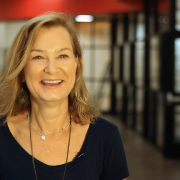Visitor research: the methodological mash-up
This session explores the methodological explosion that has been quietly unfolding in museums during the last decade. As the boundaries between Evaluation and Research are being reconfigured so are the disciplinary borders and theoretical constructs that guide the methodologies used in museums. It’s a research mash-up, a fusion and amalgamation of disparate methodologies colliding to transform the focus and scope of museum studies.
Speakers will showcase this methodological disruption by embracing and re-visioning a range of disciplinary frameworks (psychology, anthropology, social learning, technology) and research protocols (videos, self-reports, ethnography, collaborative dialogues). This focus establishes a solid foundation for reflection, dialogue and critical assessment.
Session legacy
You want find out more about the evaluation system implemented in the SPARKS project, and what we learned form on our " Capture Learning Report".
Session speakers
Perot Musuem of Nature and Science
Ethnography is rapidly becoming part of the evaluator’s methodological toolbox. Although rooted in anthropology, this epistemological connection is largely missing from ethnographic research emerging in museum studies, resulting in distorted data and limited insight. Jones will present a pilot study demonstrating how ethnography can be revisioned and successfully applied to visitors’ research in museum settings.
What are the challenge and limitations of self-report methods? Can questionnaires transit between nations and cultures? Suzana Filipecki will share the challenges encountered in the complex evaluation system implemented in the Sparks project focusing on the adaptation process required by the geographical scope and cultural landscape of Sparks.
Nils Petter will discuss using data from video cameras to study visitors’ learning processes. Several projects have used observations to evaluate learning by categorizing visitor behaviours. The categorizing is based on relating behaviours to see if exhibits or programs results in activities that are recognized by theory of learning to be fruitful. Some included topics are: what is a fruitful behaviour, pros and cons of using video, and finding practical ways to do evaluation.
Chief specialist in the Research Department
Artur Kalinowski evaluates a new show at Copernicus Science Centre’s Planetarium to demonstrate the power and value of mixed-method research methodologies, including surveys, Interviews, drawing tests, text analyses. These tools were re-imagined in an innovative way, combining standardized methods into an adaptive framework that could address complex research problems, including conducting research with children. This focus highlights the fact that methodologies do not have to be technologically-advanced in order to produce quick, relevant and reliable data.





